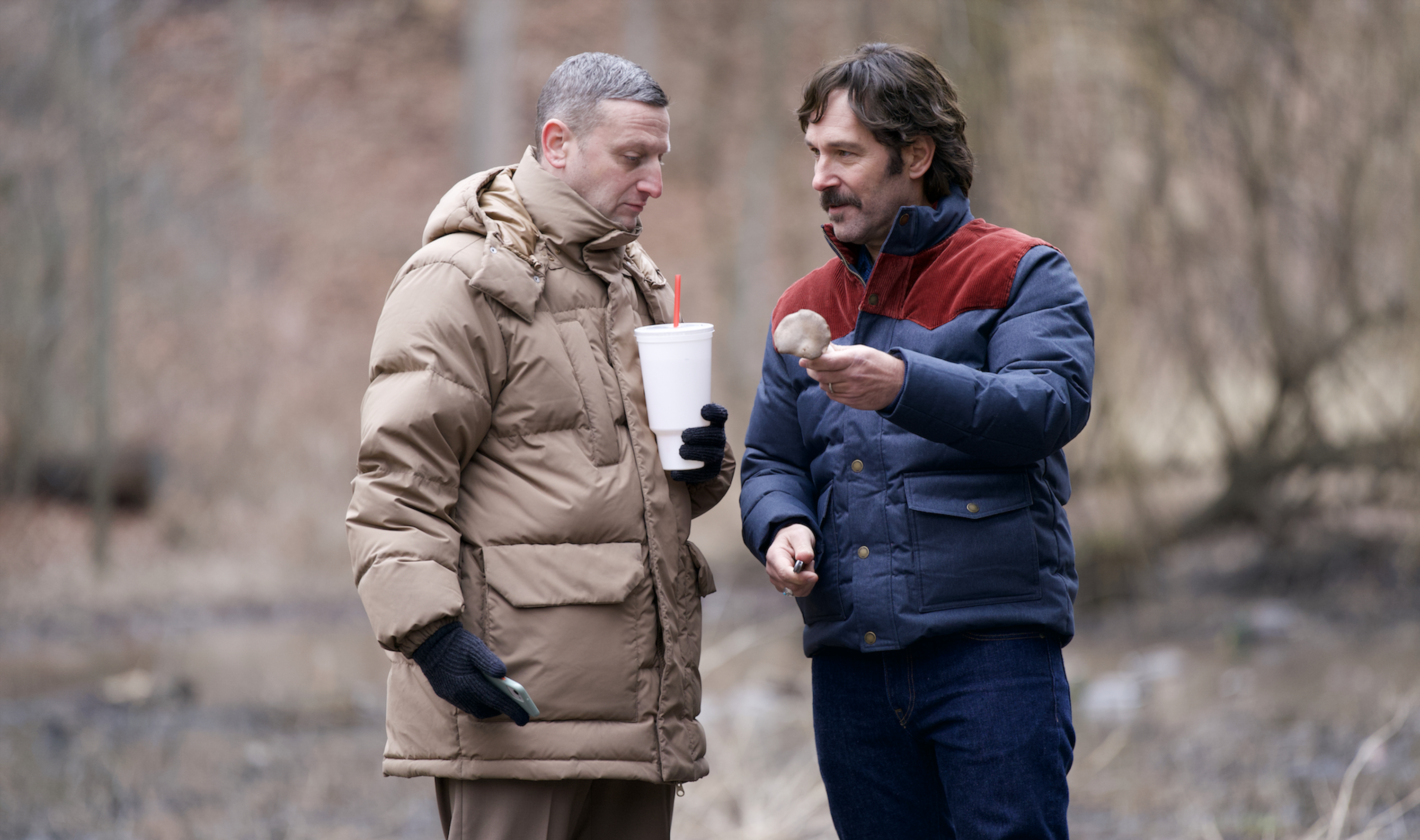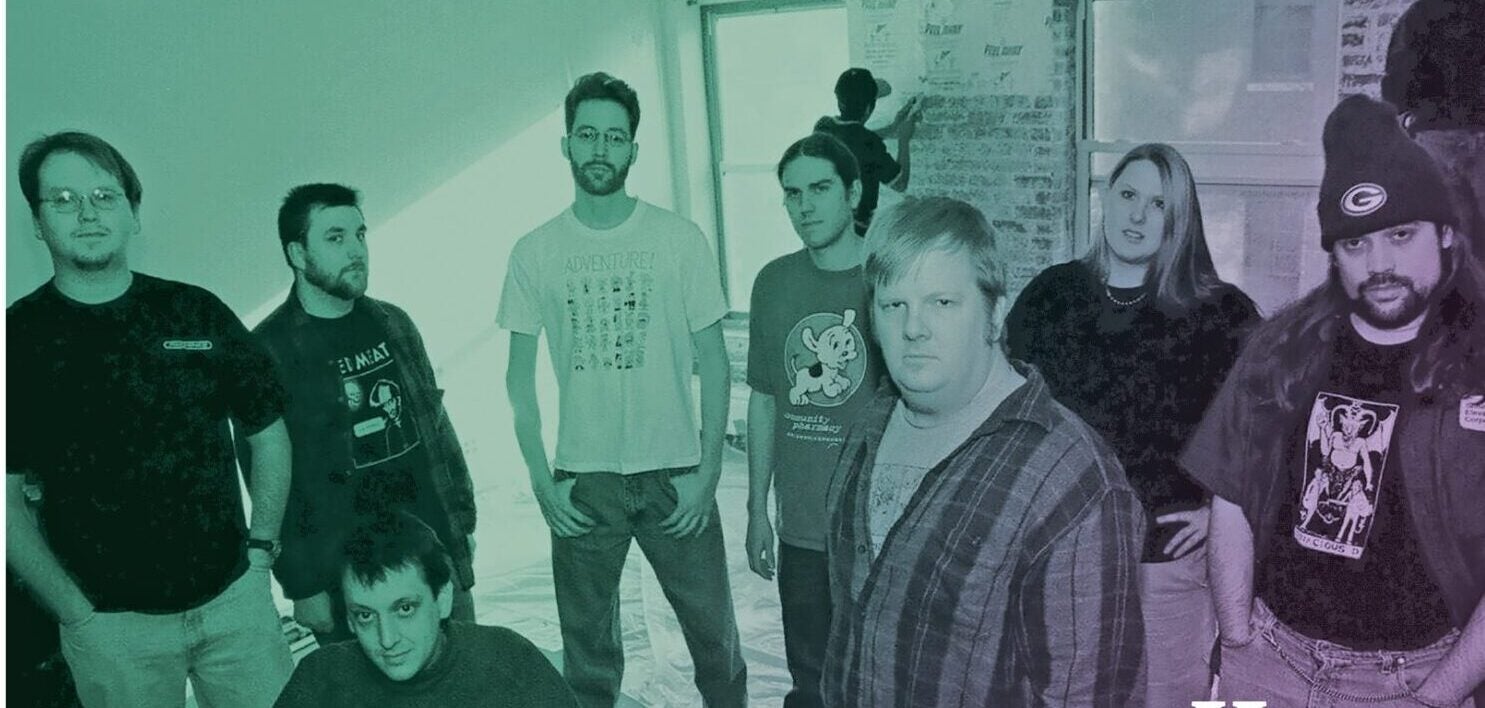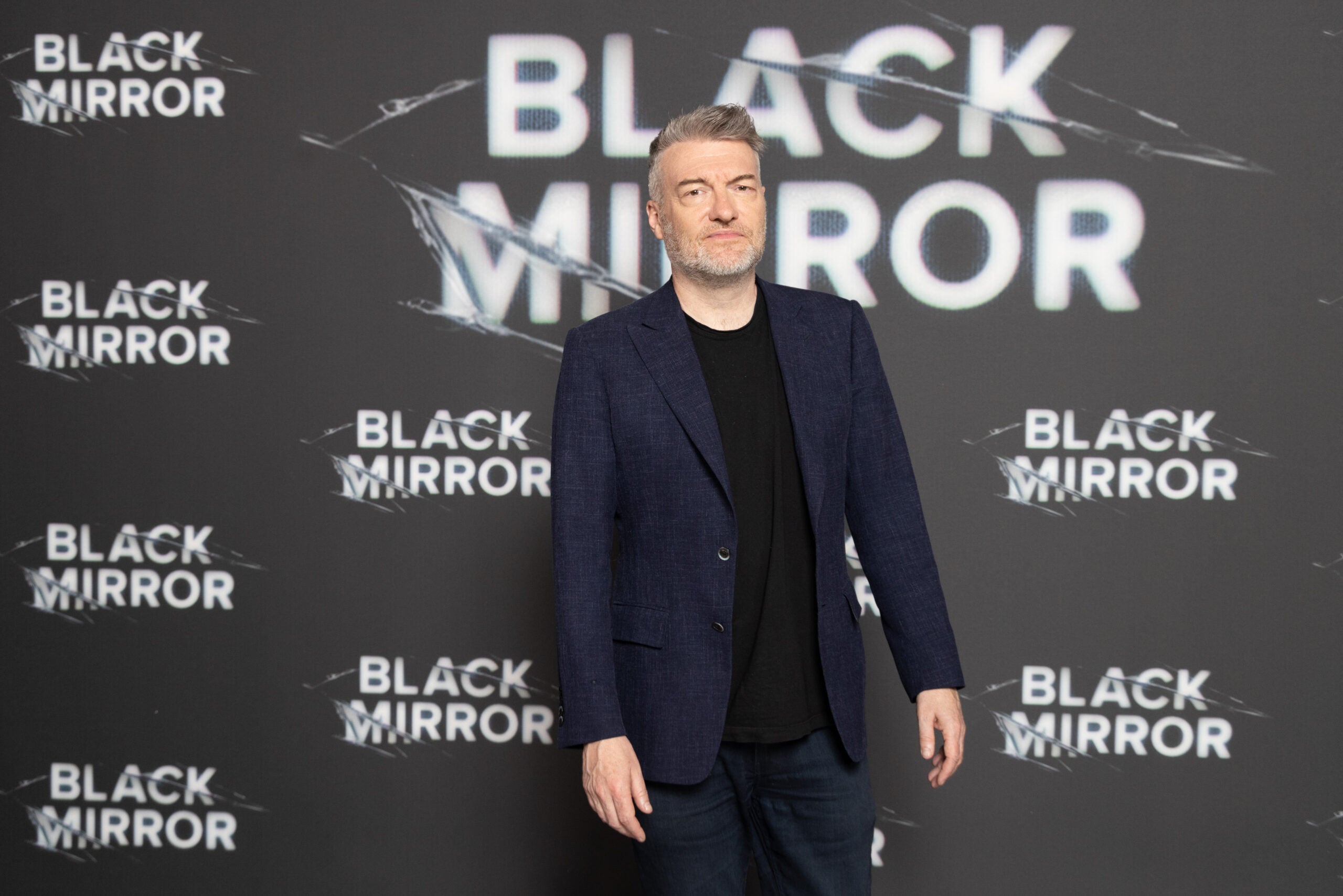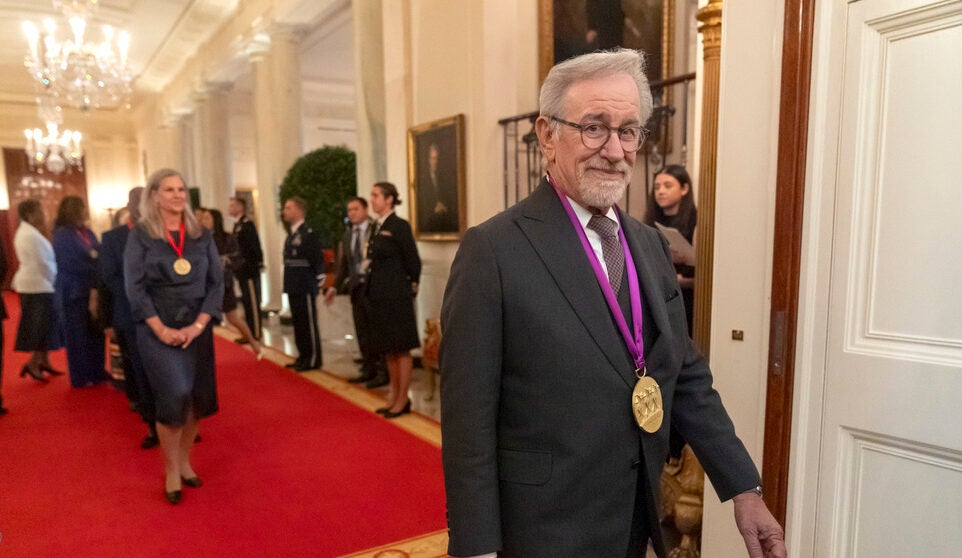Andrew DeYoung is the screenwriter and director of the A24 film, “Friendship.” The film stars Paul Rudd and Tim Robinson. Robinson stars as Craig Waterman, a suburban dad who develops a bit of a man crush over his new neighbor, Austin Carmichael, played by Rudd.
When Carmichael tells Waterman that although they have had a couple of really nice hangs, it’s time for them to go their separate ways, Waterman loses it.
When DeYoung recently talked with WPR’s “BETA,” he praised Robinson’s commitment to cringe, discussed drawing inspiration from Terrence Malick films and shared the personal reflection that planted the seed for “Friendship.”
News with a little more humanity
WPR’s “Wisconsin Today” newsletter keeps you connected to the state you love without feeling overwhelmed. No paywall. No agenda. No corporate filter.
The following interview has been edited for clarity and brevity.
Andrew DeYoung: One day, I was kind of frustrated by a friend of mine. I caught myself ruminating about it, and I thought it was a bit pathetic, to be totally honest. And I thought, wait a second, have I seen a comedy about two middle-aged men having a friendship breakup? Because it happens all the time, right? And I thought, that could be really funny because I find men and how they communicate endlessly fascinating and also deeply funny.
Doug Gordon: Can you tell us about the characters and how they meet in the movie?
AD: They’re neighbors. The Austin character moves into Craig’s neighborhood. A package gets misdelivered to Craig’s, and he takes it over as a good neighbor would and gets immediately enamored by this new alpha male in the neighborhood who takes him under his wing and invites him into his new, exciting world.
DG: And like a good neighbor, Craig Waterman is there!
AD: (Laughs) That should be the tagline.
DG: You’re friends with Tim Robinson, so I was surprised to learn that you didn’t set out to write the film with Tim in the lead role. What made you change your mind?
AD: I started to write it just out of curiosity for the idea. And then as it started to become something that felt more real, I thought, who could possibly play this part? And then Tim came to mind, and I started to write it with him in mind. He didn’t know I was writing it for him until I sent him the finished script, but he was certainly in my mind throughout the process.
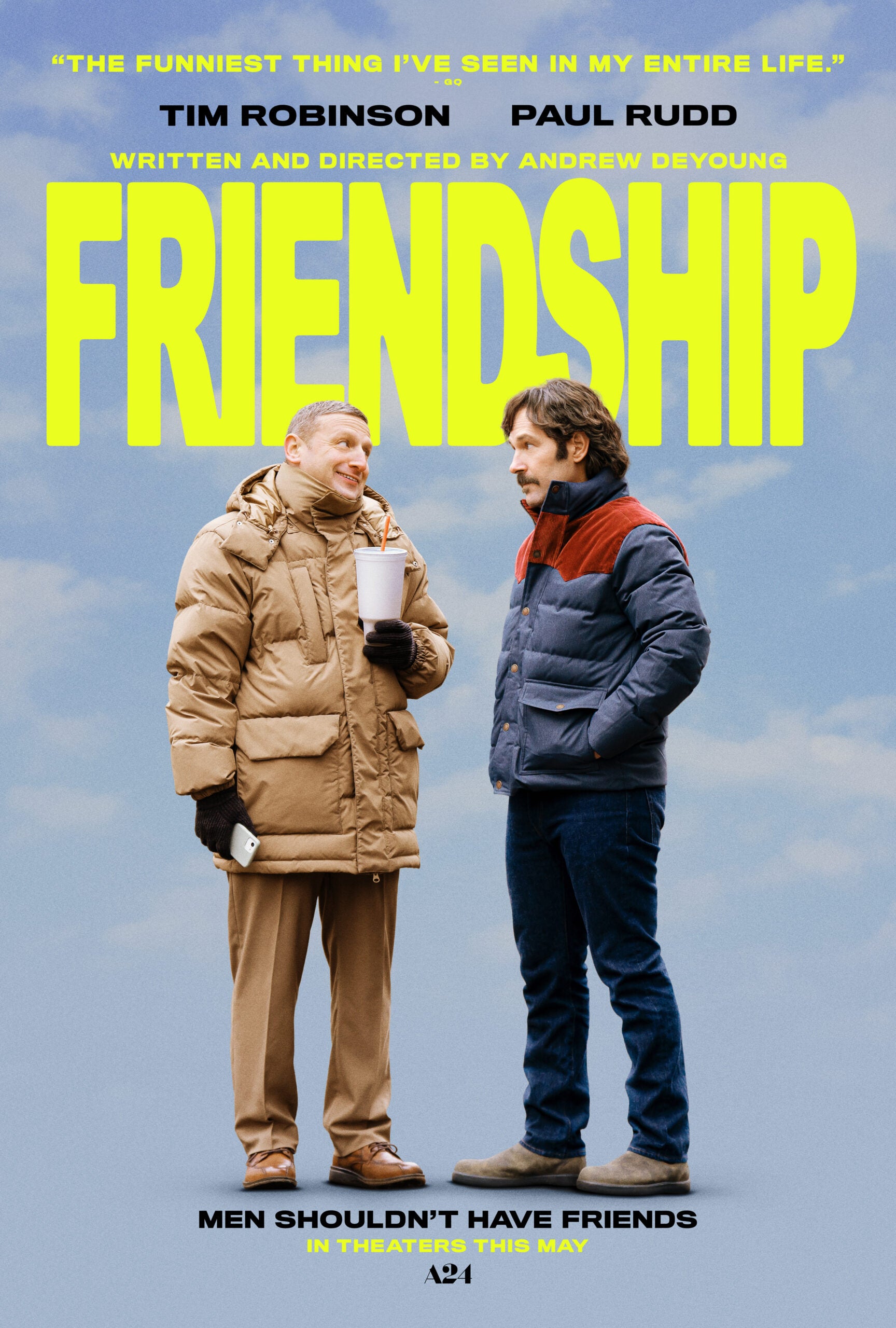
DG: The turning point in “Friendship” is when Rudd’s character Austin tells Robinson’s character Craig that he no longer wants to be friends. How does Craig react?
AD: He’s shocked, as we probably all are when we get broken up with or rejected. Yet Tim really loves being his friend and Paul has shown him a new side to life that has awoken something dormant in Tim’s life. He was really excited to have this new relationship, and when he gets rejected, he is filled with resentment and anger, which carries us through the movie.
DG: There’s this great scene where a lot of the guys start singing “My Boo” by Ghost Town DJs. Can you tell us what inspired you to create this scene?
AD: (Laughs) Thank you. Well, I knew that the act break was going to be the breakup. So I’m like, OK, I have the first act for these people to meet and basically fall in love, right? And I gotta do that in the shortest amount of time. So what’s a quick way to show that these guys are sensitive guys, they’re all on the same page, but also like men still. So let’s have them talk about their emotions, let’s have them sing because that’s surprising and interesting and it’s also funny. And then they’ll box afterward because we have to remind them that they’re not just sensitive guys.
So I wanted to show a type of man that wasn’t in Craig’s life that he could be introduced to, and the dormant parts of him can be awoken and invited to flourish. Then, he could be kicked out of this Garden of Eden that he’s being introduced to.
DG: Although Austin, Craig and others avoid some of the hallmarks of toxic masculinity, they still seem to aspire to it, from lusting after Corvettes and easily losing their cool to Craig taking his wife, Tami, for granted. She’s played by the very talented Kate Mara. I was left feeling a little sad for their childishness and lack of self awareness. Is that what you were going for?
AD: I love that question. That’s so great. Absolutely. These are middle-aged guys. So I’m 42 and I’m trying to rise above certain cultural conditionings, but I fall prey to them at the same time. So I like the mixture, the materialism and some of the midlife crisis things happening. But also that the Austin character is at least pushing into new modern territory.
DG: There’s this interesting moment when Tami looks at some flowers and she asks the question, “Wasn’t this intelligent design?” That question makes me think of Terrence Malick’s film “The Tree of Life.” Are you a Malick fan?
AD: Absolutely. He’s the best we have.
DG: Well, you’re not too far behind.
AD: (Laughs) That’s really sweet.
DG: Well, I think it’s true, and he’s been your hero since you were 16. Is that correct?
AD: Absolutely. When I saw “The Thin Red Line,” I was so astonished that film could reach these ineffable tones that mimic our inner worlds. He doesn’t have a moment of comedy in his movies, but he certainly has the courage to push in to territory that we’ve never seen before, and I’m constantly blown away by what he’s reaching for.
DG: You have said that no one wants to be told what to think. We all have our armor against agendas. And you still have an agenda in your work, but you try to bury it deep so it forms the emotions. I found this a very interesting thought. How deep did you bury your agenda in “Friendship”?
AD: Our agenda is in our work whether we realize it or not. I think we all have an armor against didactic work, or work that lectures, even if the message is important and necessary. There’s something incredibly valuable in just simply entertaining for entertaining’s sake. And so I have these things to say, but I don’t want to lecture anybody.
So I’m just going to bury it as deep as possible and even try to forget it myself and just follow the emotions that feel authentic.
DG: And what do you want your viewers to take away from “Friendship”?
AD: I strongly believe that a filmmaker shouldn’t interpret their own film, and so I want to let that be the job for the audience, even though I have my own thoughts about it. I mean, ultimately, I want people to have a good time and I want them to feel seen.

